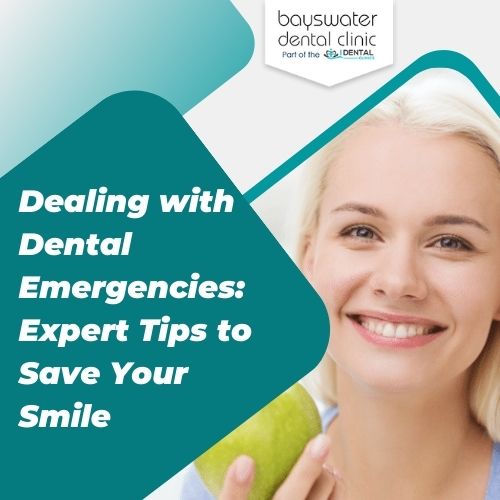We all have been there! You know, those sudden and unexpected oral health issues that can leave you in excruciating pain. Dental emergencies can happen to anyone, and they require prompt action to prevent further complications.
In this blog post, we have covered some expert tips on how to handle dental emergencies until you can see an emergency dentist in London. But first, have a look at what dental emergencies can be like.
What Are Dental Emergencies?
Dental emergencies can be a real pain in the ‘mouth’! They happen unexpectedly, leaving you feeling helpless. They are oral health issues that require immediate attention to alleviate severe pain, save a tooth, or stop bleeding.
Imagine you are enjoying a tasty snack, and suddenly you feel a sharp pain in your tooth. You try to ignore it, but the pain just keeps getting worse. You look in the mirror and notice your tooth is cracked or chipped, and you start to panic. This is just one example of a dental emergency.
Other common dental emergencies include a knocked-out tooth, severe toothaches, and bleeding from the mouth. These issues require prompt action to prevent further complications.
Make sure to keep your dentist’s contact information handy, so you can call them right away. They may be able to see you on short notice or refer you to a specialist who can help.
In the meantime, there are things you can do to manage the pain.
For example, if you have a knocked-out tooth, rinse it gently with water and try to place it back in its socket. If you cannot do that, put it in a cup of milk or saline solution until you can get to the dentist.
Tips to Deal with Dental Emergencies
Dental emergencies can be scary and uncomfortable. From toothaches to broken teeth, there are many different types of tooth emergencies that can occur. Knowing how to deal with them before seeing an emergency dentist near me can help minimize pain and prevent further damage. Below are some common types of dental emergencies and what you can do to deal with them.
- Broken or chipped tooth: If you break or chip a tooth, rinse your mouth with warm water and apply a cold compress to the affected area to reduce swelling. Try to save any broken pieces of tooth and bring them with you to the dentist. They may be able to use them to repair the tooth.
- Toothache: Many different things might cause toothaches. They include tooth decay, gum disease, and tooth abscesses, among others. At first, try flossing around the affected tooth to see if there is anything stuck in there. If the pain persists, take OTC drugs and contact your dentist right away to schedule an appointment.
- Bleeding gums: If you experience bleeding from the gums, rinse your mouth with warm water first. Then apply pressure to the affected area with a clean cloth or gauze pad. If the bleeding persists, you need to seek medical attention immediately.
- Lost filling or crown: If you lose a filling or crown tooth, rinse your mouth with Luke warm water. Try to save it if possible. Contact your dentist to schedule an appointment to replace the filling or crown.
- Object stuck in teeth: If something gets stuck between your teeth, try using dental floss to gently remove it. Avoid using sharp objects that could damage your teeth or gums.
- Abscessed tooth: If you think you have an abscessed tooth, contact your dentist as soon as possible. Meanwhile, rinse your mouth with warm salt water to help reduce pain and swelling.
- Jaw injury: If you experience a jaw injury, apply a cold compress to the affected area to reduce swelling. Avoid eating solid foods and stick to soft foods and liquids until you can see your dentist.
- Broken braces or wires: Try to gently push the wire back into place using a cotton swab or pencil eraser. If you are unable to do so, cover the end of the wire with orthodontic wax to prevent it from poking your cheeks or gums.
- Dental trauma: If you experience a blow to the mouth, seek medical attention immediately. Rinse your mouth with luke warm water and apply any cold compress to the affected gum area to reduce swelling.
To Wrap Up
Dental emergencies can be scary, but staying calm and knowing what to do can make all the difference. If you experience a dental emergency, contact a dentist at Emergency Dentist London Pro without a delay. And remember, taking good care of your teeth and gums can help prevent dental emergencies in the first place.
Visit News Readings for more posts.



